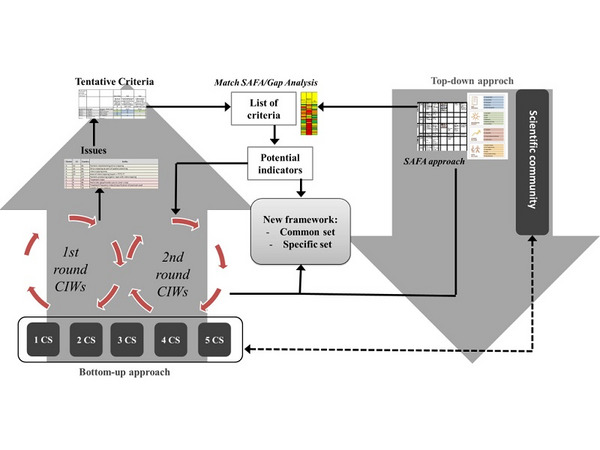The most common approach for sustainability assessments of agricultural systems is based on the use of performance indicators, i.e. assessing the ability of the system to achieve sustainability objectives. Since individual indicators cannot assess all of the essential aspects of sustainability, a representative set of indicators is generally used to analyse the environmental, economic and social dimensions of sustainability and their interconnections.
Part of the DiverIMPACTS project aims to develop a new analytical framework, composed of indicators which are designed to evaluate the performances and sustainability of diversified cropping systems and able to evaluate potential synergies and trade-offs occurring in such complex systems. The framework will be applied to the diversified agricultural systems in real case studies across Europe. Furthermore, it will assess the benefits and the drawbacks of diversification at different scales including the field, farm, territory and value chain level.
The new framework is being designed using both top-down and bottom-up approaches (see figure 1). The framework integrates a top-down approach by using established and commonly accepted frameworks as a basis. For the sustainability assessment of agricultural systems, it draws upon the Sustainability Assessment of Food and Agriculture systems (SAFA) framework (FAO, 2013) which is based on four sustainability pillars (environmental integrity, economic resilience, social well-being and good governance). Each pillar is divided into themes and sub-themes with associated sustainability objectives.
The DiverIMPACTS team also integrates bottom-up approaches by incorporating input from other actors (farmers, advisors, cooperatives, industry and public engagement for society) operating within the project consortium. The team is strongly interacting with the case studies and the DiverIMPACTS co-innovation workshops in order to identify a list of agreed indicators, which can serve to evaluate the sustainability of the case studies during the implementation of their diversification action plans. From the relevant sustainability issues identified with the support of the case studies during the first round of co-innovation workshops, a list of 22 criteria was established, which match the themes and sub-themes of the SAFA framework. The team is now working on identifying indicators to measure the performance of each criterion at different scales. Moreover, based on discussions during the second round of the co-innovation workshops, the DiverIMPACTS team is identifying a common set of indicators (a minimum list) to be used in all case studies as well as additional specific indicators to cover particular needs of some case studies. Furthermore, the indicators are coherent and in line with the scientific assessment proposed for the field experiments, in order to quantify the agronomic and environmental benefits of crop diversification at the field scale, and also address the social and economic sustainability aspects.
The close collaboration between scientists and case studies is proving useful for both parties. The case studies are providing inputs on important issues to consider in the analytical framework, but, at the same time, they are gaining new knowledge and new insights as a result of their involvement in the learning process.
FAO (2013). Sustainability Assessment of Food and Agriculture systems guidelines. Retrieved from http://www.fao.org/fileadmin/templates/nr/sustainability_pathways/docs/SAFA_Guidelines_Final_122013.pdf.

 toccare e scorrere fino al comando Aggiungi alla schermata iniziale.
toccare e scorrere fino al comando Aggiungi alla schermata iniziale.